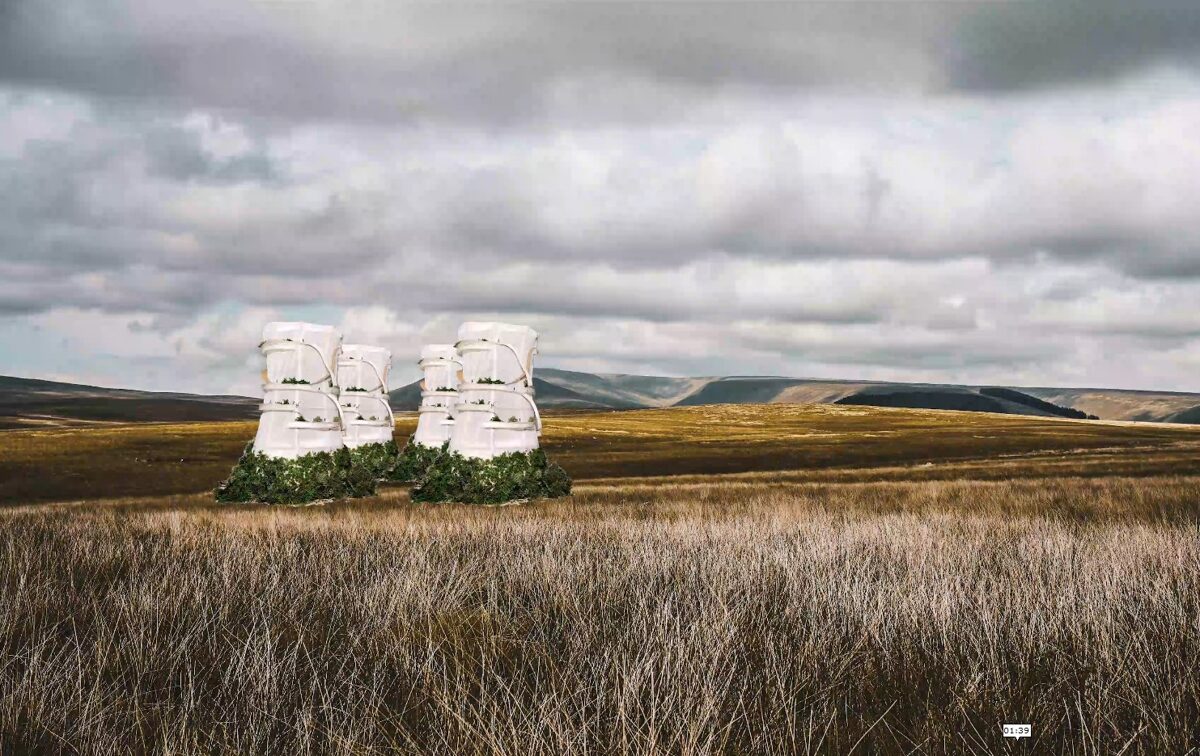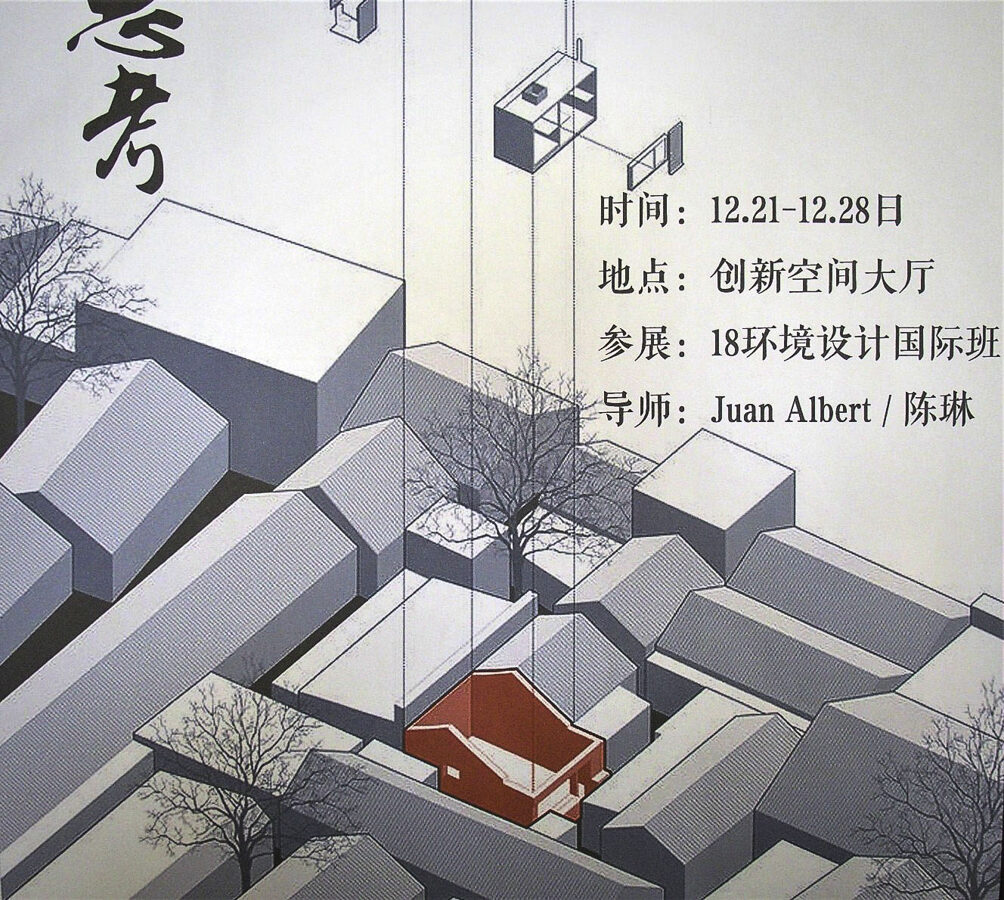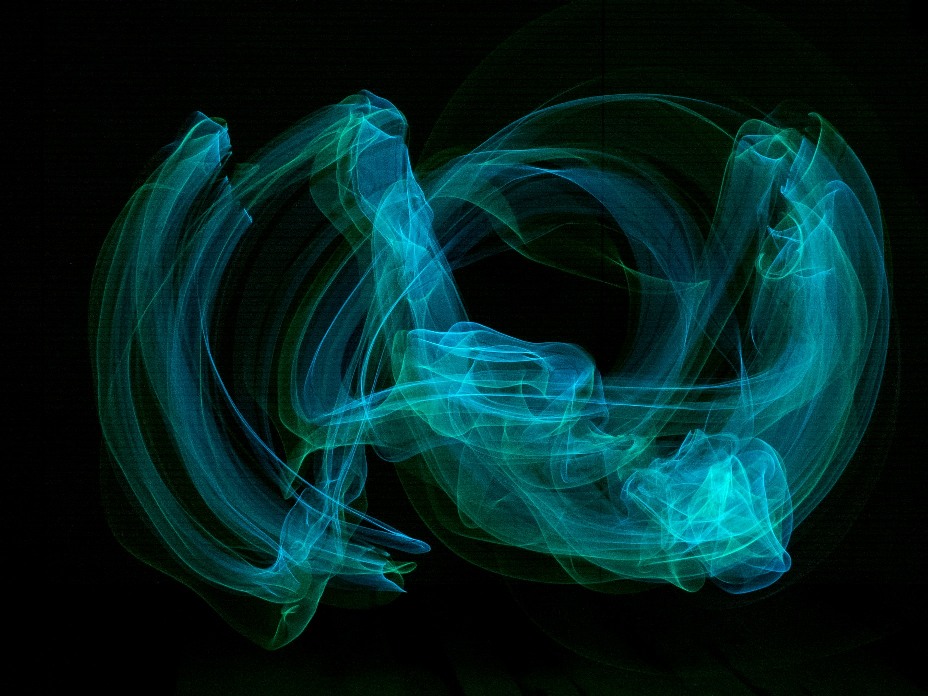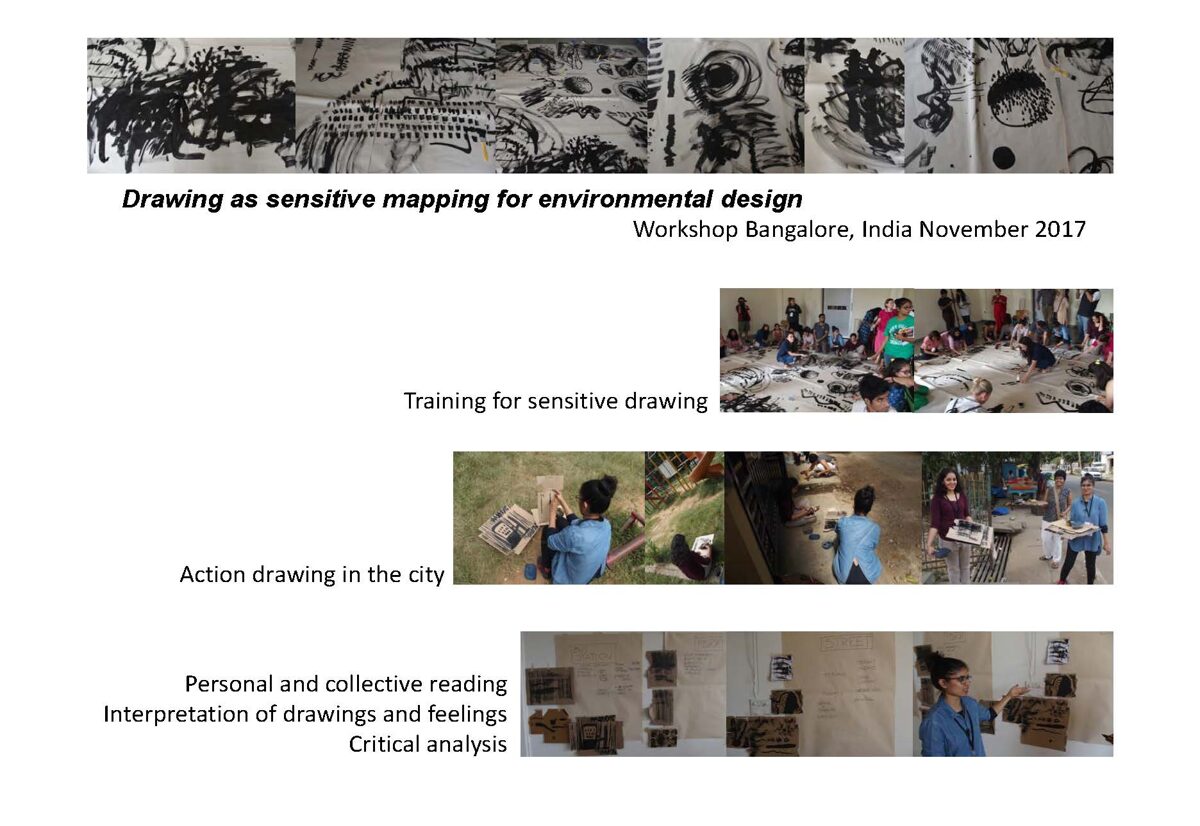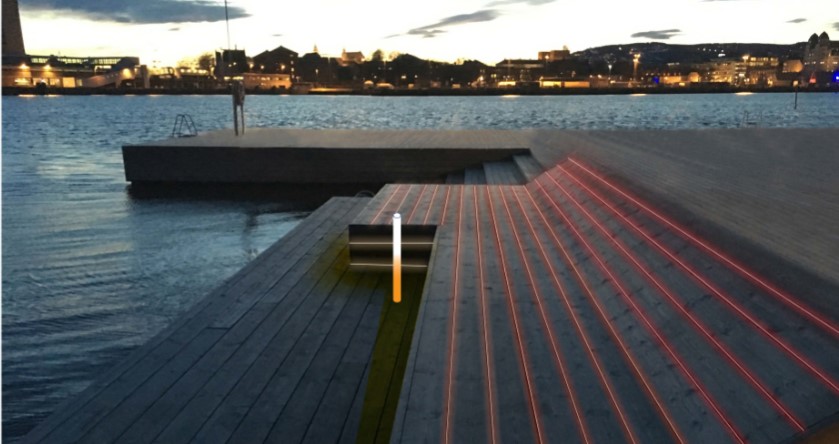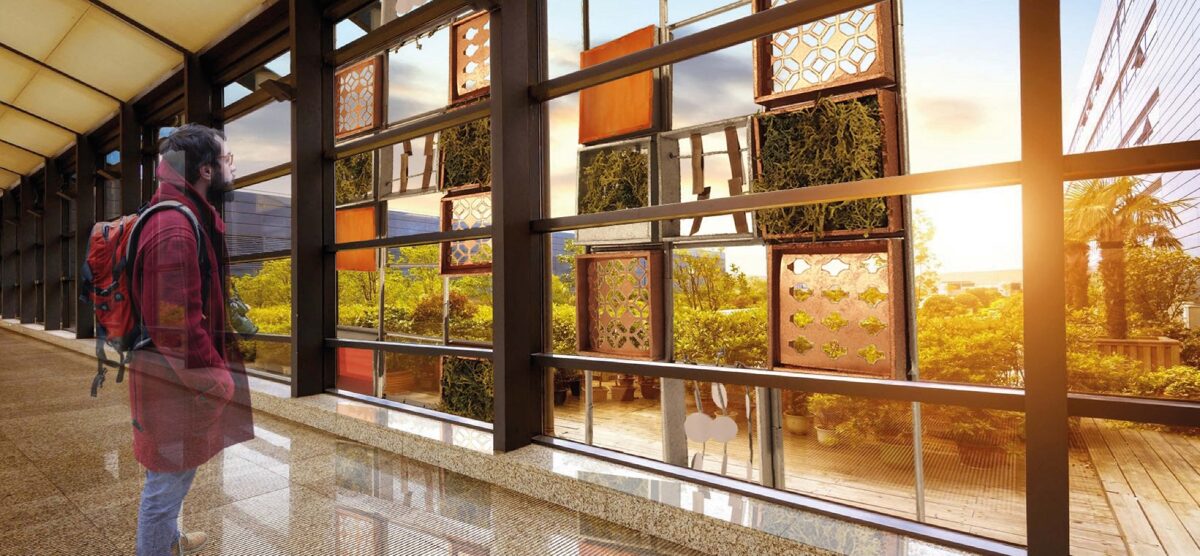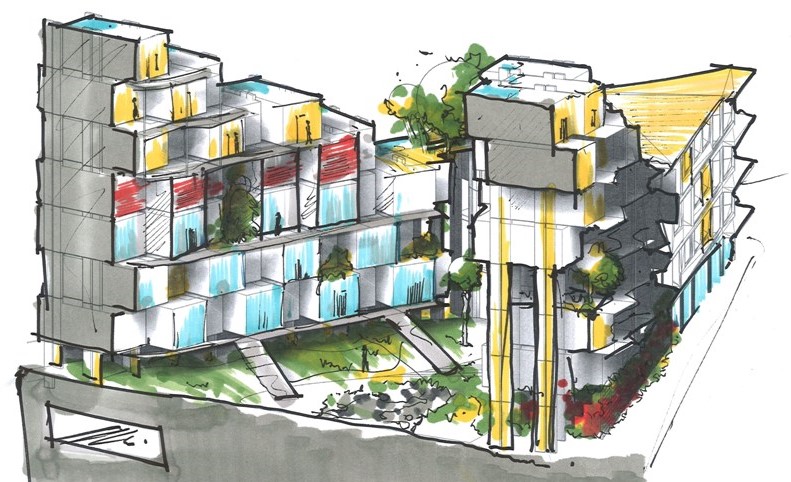Redesigning Puqian Old Street
- Nanhai Academy of Arts. Haikou, China 2024. Lecture + Workshop. Environmental Design (2-3rd course).
Most of the spaces where we develop our daily life are artificial environments totally disconnected from the natural environment. These spaces end up being 'non-places', spaces for the security, the control and the ‘superinformation’ without any reference to the cultural, social, natural or environmental context in which they are located.
The purpose of this workshop is to look for new ideas of environmental design to apply in the redesign of Puqian Town old street.
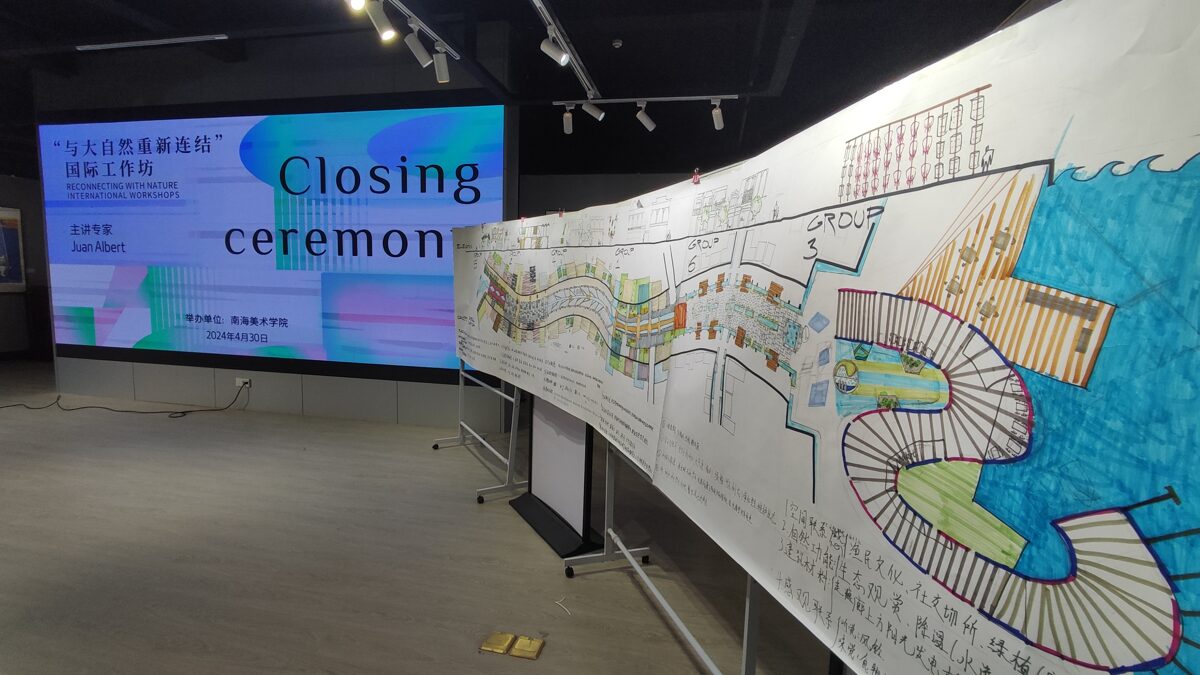
Creativity for reconnecting with the environment
Lecture + Workshop. 869 Design School, Hangzhou, China 2024.
The development of creativity is fundamental to undertake a positive change in our relationship with the environment.
This workshop introduces students to new tools for designing more human and sustainable environments.

ARCHITECTURE FACING ENVIRONMENTAL CHALLENGES
- National Autonomous University of Mexico, UNAM. 2024. Workshop with students and teachers of Architecture and Urbanism.
The course invites to rethink the relationship between architecture and environment through creative thinking and emotional knowledge, teaching tools to manage complexity and uncertainty in architectural design processes.
The objective is to introduce a multidisciplinary and systemic vision in the design of habitability.

The senses in space perception
- Arquitectura a les Aules, COAC / Gaia School (4rt. primary course), Barcelona, España. 2024.
Workshop to introduce students to the importance of the senses to relate in a more sustainable way with our environment.

Interior Design
- Gengdan Institute of Beijing University of Technology. China 2024 International Environmental Design Studies (2nd. course)
The course is based in the importance that design has as a change agent for improving our environment with special emphasis in creativity and sustainability. Students will be working on searching new spatial qualities that generate new perceptions, lifestyles and behaviors to make us more aware of our environment and more respectful of the earth’s sustainability.

Reconnecting with earth
- Gengdan Institute of Beijing University of Technology, China 2024. Design Workshop (3rd course).
It´s through the senses that we perceive our relationship with the elements of nature and Earth. Creating spaces that maximize our sensory links with the elements of nature can contribute to the generation of a more respectful environment, healthier and above all much more exciting.

Landscape Design
- Gengdan Institute of Beijing University of Technology. China 2023 International Environmental Design Studies (2 course).
The course is based in the importance that design has as a change agent for improving our life quality in the cities with special emphasis in urban ecology and sustainability.
Students explored different creative techniques for the development of landscape projects with new spatial qualities that contribute to the renaturalization of our urban environments.

Residential Building Regeneration
- Gengdan Institute of Beijing University of Technology. 2023 International Environmental Design Studies (3 course)
The objective of this course is to introduce students to the environmental design of a residential building in the city with a project-based education methodology. This methodology allows students to develop skills to work with the complexity of architectural and urban design introducing them to the bioclimatic, ecological, economic and social aspects involved in the resolution of real design projects.

Looking for narratives to reconnect with Earth
- Cumulus Beijing Cafa 11/2023 Conference / Workshop. Collaborator: Prof. Lin Chen.
Exploring new narratives in relation to our planet can be the first step to create new behaviors and to face in a more positive and exciting way the environmental challenges that we urgently have to face.

Future scenarios for affective ecologies
- Gengdan Institute of Beijing University of Technology, China 2023. International Environmental Design Studies (2-3 course). Collaborator: Prof. Lin Chen.
Regenerative design for an industrial area in Beijing.
How can Design take advantage of an energy scarcity and climate change context to create new positive spaces for alternative lifestyles?
How can Design rethink relations and explore the abundance and sensuality of our environment for the generation of new narratives, and scenarios?

Body and Space
- Gengdan Institute of Beijing University of Technology, China 2023. International Environmental Design Studies (1rst. course). Collaborator: Prof. Lin Chen.

Building sensory spaces
- Arquitectura a les Aules, COAC / Padre Damian School, (5 curse), Barcelona, Spain. 2022.
Workshop to explore places at school that stimulate the senses and bring us closer to nature.
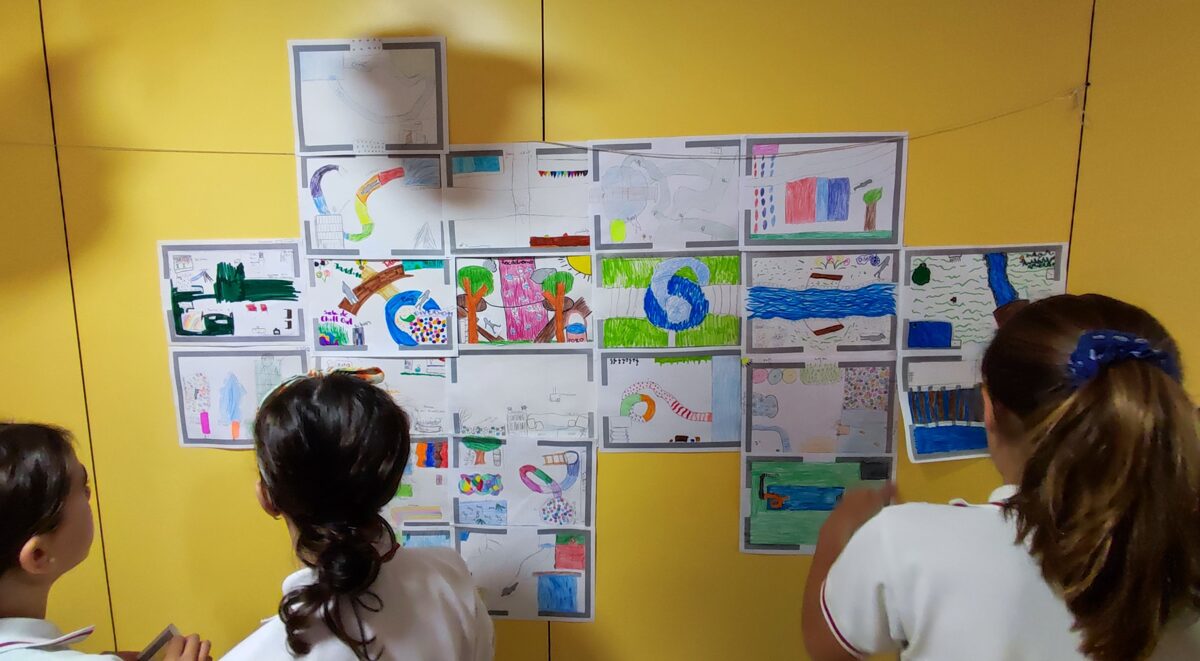
New scenarios for future affective ecologies
- L’École de Design Nantes, France. 2022. International Workshop (3rd. course)
Workshop on how space design can rethink relations and explore the abundance and sensuality of our environment for the generation of new narratives, and scenarios.
How can Space Design take advantage of an energy scarcity and climate change context to create new positive atmospheres for alternative lifestyles?
Rethinking common spaces of the school based on the senses
- Arquitectura a les Aules, COAC / Concepción School, (5 curse), Barcelona, Spain. 2022
Introducing basic concepts of architecture, the students worked through texts and drawings on new design proposals for the common spaces of their school.
The workshop emphasized the importance of all the senses, not only the visual, in the perception of the school's everyday spaces.

Space exploration (creating atmospheres)
- Gengdan Institute of Beijing University of Technology, China 2020-21. International Environmental Design Studies (first course). Collaborator: Prof. Lin Chen.
Development of 'spatial intelligence' through creativity. Through drawings, photography and 3D models, the students explored numerous ways of creating spaces and raising environmental awareness.
Through structural and psychological aspects (color, light...) of space, 'atmospheres' were created emphasizing bodily and sensual aspects of environmental perception.
Rethinking the Chinese house (Hutong)
- Gengdan Institute of Beijing University of Technology, China. 2018 y 2019. International Environmental Design Studies (First course). Collaborator: Prof. Lin Chen.
Redesign of the traditional Chinese housing module (hutong) through different creativity techniques. Intercultural knowledge (East/West), was valued in studying the reconstruction of traditional neighborhoods in danger of disappearing due to speculation and urban growth in the city of Beijing.
The search for new spatial qualities was promoted to generate new perceptions, lifestyles and behaviors more respectful for the sustainability of our habitats.
Stop for lunch in public spaces
- Elisava/L'École de Design Nantes, France. 2019. International workshop (third course).
How to improve the fast food experience in the city? Through drawing and analysis of specific spaces in the city of Nantes, ergonomic solutions for casual dining were explored. An investigation was carried out on how spaces can provide new opportunities for casual, collective or individual meals in the city.
The workshop allowed students to reflect on fundamental aspects of consumption, sustainability, pollution, tradition and local production.
Re - connecting
- Arquitectura a les Aules, COAC / Inmaculada Concepción School, (courses 5A and 5B). Barcelona, Spain. 2019
Developing in children a new sensitivity and critical look at the environment that surrounds us. They explored and discovered through drawing and collage various ways to reconnect people with nature.
The workshop allowed to develop a more humane and sustainable vision of architecture and the design of our environments.
Designing recreational spaces
-
Gengdan institute of Beijing University of Technology, China. 2019 y 2021. International Environmental Design Studies (Second year). Collaborator: Prof. LinChen.
Proposals to renaturalize the city through the design of recreational spaces promoting sustainable design and awareness of impacts (consumption, pollution, waste, etc.) on earth.
Strategies for reconnecting with nature were created to improve urban Chinese environments of rapid and excessive growth.
Drawing as a sensory mapping for environmental design
Drawing as a sensory mapping for environmental design
- Elisava / Cumulus Bangalore, India (2018). In collaboration with prof. Rebeca Font
Discover the use of drawing as an emotional tool to encourage active participation in the generation and renovation of places. New forms of perception, habits, behaviors and social relations were explored through drawing.
In this way, traces on paper became fundamental elements for imagining and guiding processes of urban transformation and participation that improve life in the city.
The traces of the city
- Desis Lab ELISAVA Barcelona, Spain 2018. In collaboration with Rebeca Font.
At Desis Lab ELISAVA TIME (Teaching Innovation Methods & Experiments), we used individual and collective drawing to open our eyes to future scenarios where sensitive perception and imagination can generate more exciting and sustainable scenarios in our environment.
During a 'drawing tour' through the gothic quarter of Barcelona a reading of different areas was made perceiving conflicts, environments and sensations that were later analyzed as a strategy for the environmental and urban redesign of the neighborhood.
Oslo light experience
- Elisava / Akershus University College of Applied Sciences, Oslo, Norway. 2017. In collaboration with Prof. Einar Stoltenberg
Rethinking the city through light. Research and exploration of the ability of light to generate places. Projects were carried out exploring new relationships between the urban landscape and the cultural and social values of different parts of the city.
The resulting projects prioritized sustainability and the relationship with nature with innovative spatial experiences in the city.
Space, nature and the senses
- Elisava/L’École de Design Nantes, France. 2017. International workshop (third year).
Workshop on creation of spaces to link and explore nature sensorially. Sustainability issues were addressed through the sensory experience through them we perceive our relationship with the elements of nature and with the Earth.
The Spaces proposed were strongly respectful with the environment, healthier and above all charged with a strong emotional component.
Towards a sustainable habitability
- Universidad Nacional Autónoma de México, UNAM. 2016. Workshop with students of Architecture and Fine Arts.
Promote a new sensitivity toward the environment based on the perception of energies and materials flows in the refurbishment of an existing building. Through this approach students learned and interpreted specific social and physical contexts for the configuration of new urban realities.
The concept of habitability was redefined by highlighting the importance of the senses in the design of our environment.




















































































